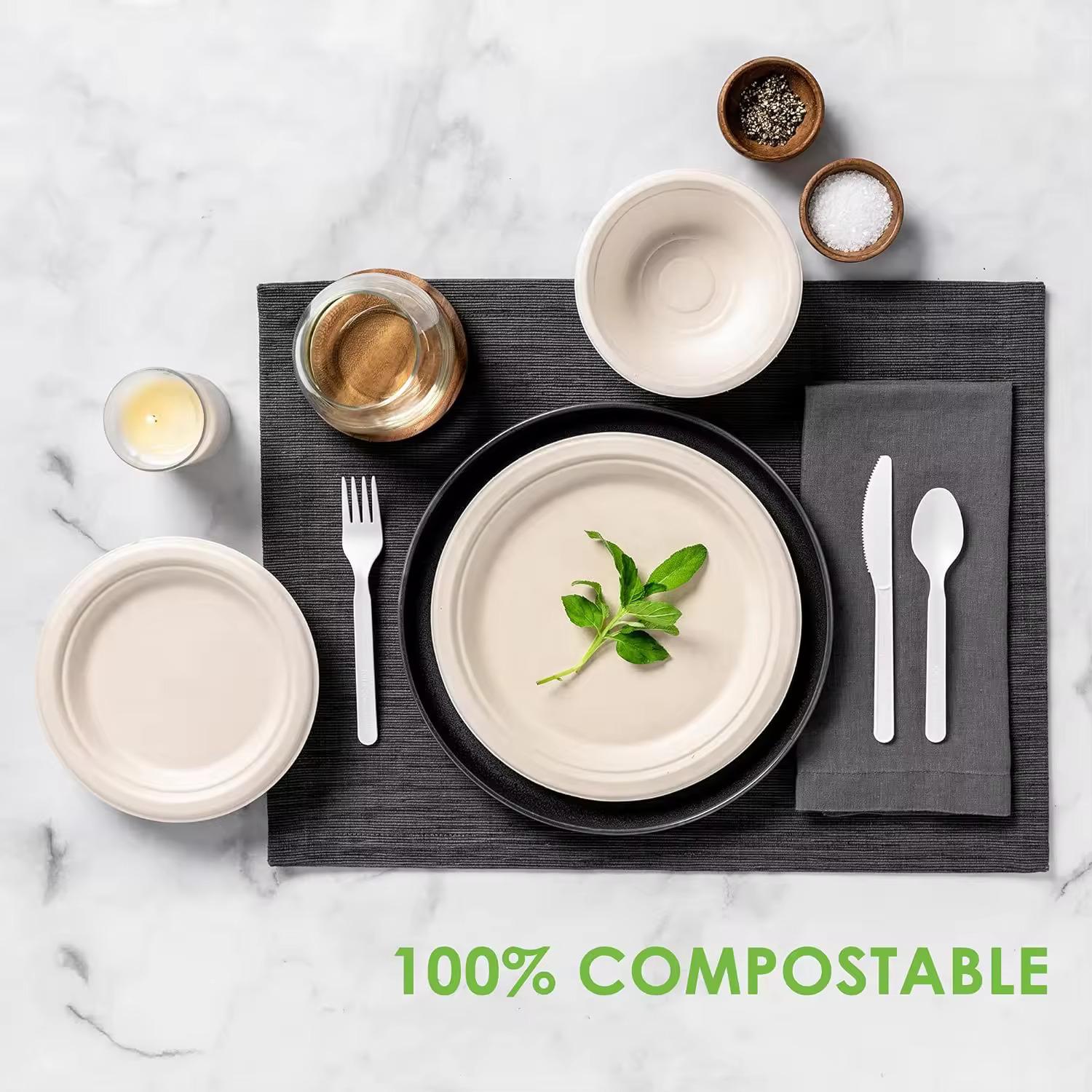In a world increasingly aware of environmental sustainability, the materials we choose for everyday products have never been more critical. Traditional plastics have been the go-to for decades due to their durability and low cost, but their environmental impact is a growing concern. Sugarcane bagasse, a byproduct of sugarcane processing, offers a promising eco-friendly alternative. This blog will explore the differences between sugarcane bagasse and traditional plastics, highlighting why bagasse is the future of biodegradable products.
What is Sugarcane Bagasse?
Sugarcane bagasse is the fibrous residue left after extracting juice from sugarcane. Once considered waste, this byproduct has found a new life as a sustainable raw material for various products, particularly in the food service industry. Bagasse is 100% biodegradable and compostable, making it an excellent alternative to traditional plastic, which can take hundreds of years to decompose.

Environmental Impact: Bagasse vs. Plastic
- Biodegradability: One of the most significant advantages of sugarcane bagasse over traditional plastic is its biodegradability. While plastic can remain in the environment for centuries, bagasse decomposes naturally within 60-90 days. This rapid degradation reduces the burden on landfills and minimizes the pollution of our oceans and landscapes.
- Carbon Footprint: The production of traditional plastics is heavily reliant on fossil fuels, contributing significantly to carbon emissions. In contrast, sugarcane bagasse is a renewable resource. The production process of bagasse products results in a much lower carbon footprint, as the material is derived from the waste of an already existing agricultural process.
- Resource Efficiency: Traditional plastics are made from non-renewable resources such as oil and natural gas. The extraction and processing of these materials have long-term environmental consequences. Sugarcane bagasse, on the other hand, repurposes agricultural waste, maximizing resource efficiency and minimizing the need for new raw materials.
Functional Differences:
- Durability and Strength: Traditional plastics are known for their strength and durability, which is why they have been widely used for decades. However, modern advancements have allowed sugarcane bagasse products to closely match the durability and strength of plastic, particularly in the context of disposable tableware and packaging.
- Heat Resistance: Bagasse products offer excellent heat resistance, making them suitable for hot foods and beverages. Unlike plastic, which can release harmful chemicals when exposed to heat, bagasse remains safe and stable, ensuring that no toxins leach into the food.
- Aesthetic and Texture: Bagasse products often have a natural, earthy appearance, which can be more visually appealing than plastic. This aesthetic quality is particularly valued in eco-conscious events and businesses that want to project an environmentally responsible image.
Economic Considerations:
- Cost: Traditional plastic is generally cheaper to produce than bagasse, but the price gap is narrowing as demand for sustainable products grows. Additionally, the environmental and social costs associated with plastic pollution are increasingly being factored into its true cost.
- Consumer Preference: As consumers become more environmentally aware, there is a growing preference for products made from biodegradable materials. This shift in consumer behavior is driving demand for sugarcane bagasse products, making them more economically viable for manufacturers.

Conclusion:
Sugarcane bagasse is emerging as a superior alternative to traditional plastics, offering both environmental and functional benefits. As the world moves towards more sustainable practices, bagasse is positioned to play a crucial role in reducing plastic waste and promoting eco-friendly products. At Stuti Exim, we are committed to providing high-quality, biodegradable tableware made from sugarcane bagasse, contributing to a greener and more sustainable future.